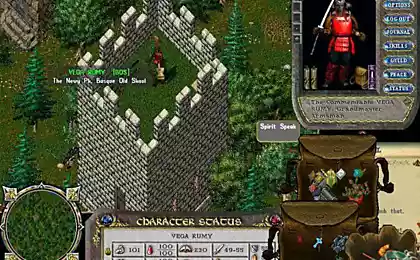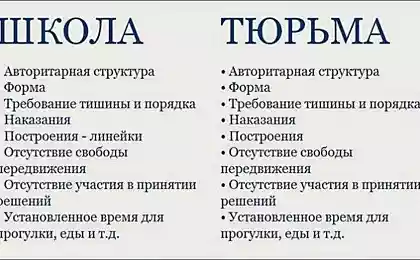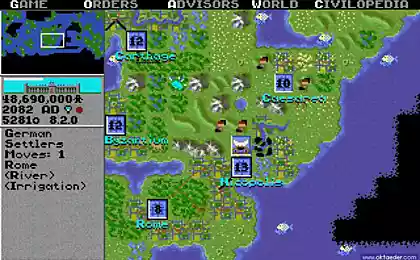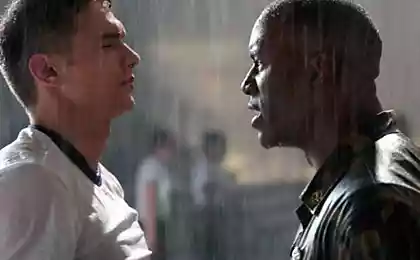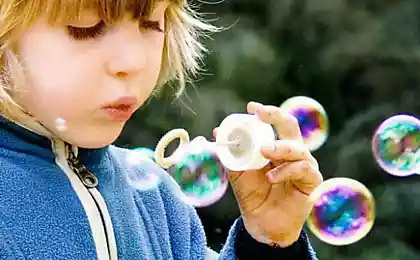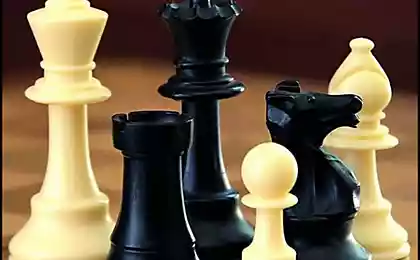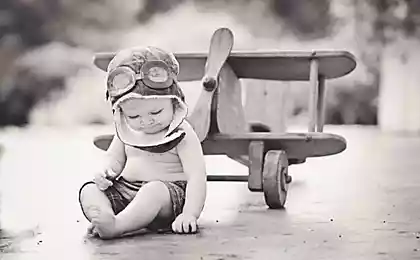545
Class warfare
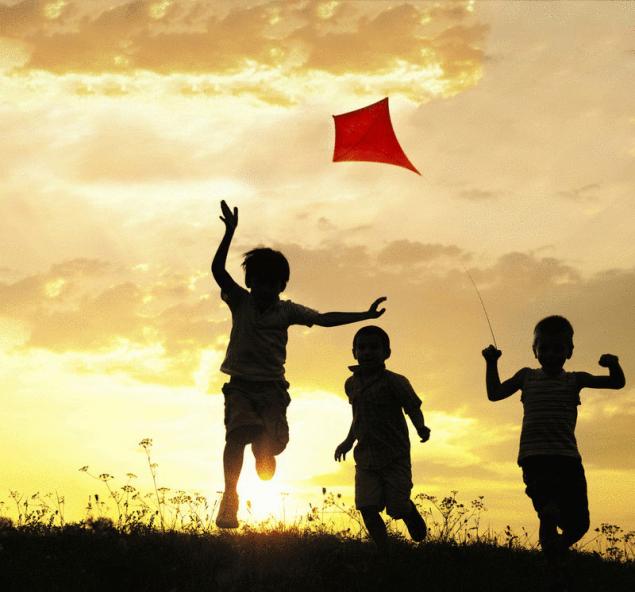
Psychologist Peter gray leads irrefutable evidence that playing in childhood is much more important than going to school. I grew up in the fifties. In those days children were educated in two forms: first, the school, and secondly, as I say, hunting and collecting. Every day after school, we went outside to play with the neighbor kids and came back usually after dark. We played all weekend and summer long. Had something to explore, to be bored, to find something to get into the history of them out pavitt in the clouds, to find new Hobbies, and read comics and other books that we wanted, not just the ones that we asked. For more than 50 years adults step by step reduces children's opportunities to play. In his book, "Children at play: an American history" Howard Chudacoff called the first half of the twentieth century Golden age of children's games: by 1900, disappeared urgent need for child labour, and the kids have a lot of free time. But since the 1960s, adults were taken to curtail that freedom, gradually increasing the time that kids spend in school, and more importantly, less and less allowing them to play on your own, even when they are not in school and not doing homework. Place yard games have come to occupy a sport, a hobby site — after-school clubs, which are adults. Fear makes parents less and less likely to let their children play outside alone.
At the time of the sunset children's games coincides with the beginning of growth in the number of children's mental disorders. And this cannot be explained by the fact that we began to diagnose more diseases. For example, throughout this time, American students regularly hand out clinical questionnaires that detect anxiety and depression, and they don't change. From these questionnaires it follows that the proportion of children suffering from what is now called anxiety disorder and deep depression, today, 5 to 8 times higher than in the 1950s. During the same period, the suicide rate among young people 15 to 24 years increased more than doubled, and among children under 15 has quadrupled. Regulatory surveys that the College students handed out from the end of the 1970s, show that young people are becoming less inclined to empathy and more and more about narcissism.
Children of all mammals play. Why? Why would they spend energy, risking life and limb, rather than to gain strength, hiding in some hole? For the first time from an evolutionary point of view on this question tried to answer the German philosopher and naturalist Karl Groos. In 1898, the book "animal Game" he suggested that the game was the result of natural selection — as a way to learn the skills necessary for survival and reproduction.
Game theory of Groos explains why young animals play more than adults (and they still have a lot to learn), and why the smaller the survival of an animal depends on instincts and the more skill, the more often it plays. To a significant extent, to predict what an animal will play in childhood, based on what skills he will need for survival and reproduction: cubs running into each other or sneaking around behind a partner, to then suddenly to pounce on him, and the Zebra foals learn to run and to meet the expectations of the enemy.
The next book of Groose was the "Game of man" (1901) in which his hypothesis has spread to people. People play more than any other animal. Human children, unlike the young of other species, must learn many things related to the culture in which they will live. Therefore, due to natural selection, children play not only in what you need to be able to all people (say, walking on two legs or run), but also the skills needed to be representatives of their culture (e.g., shoot, shoot arrows or herding cattle).
Based on the works of Groos, I interviewed ten anthropologists, which in total studied seven different hunting-gathering cultures on three continents. It turned out that the hunters and gatherers there is nothing like school — they believe that children learn by watching, exploring and playing. Answering my question "How much time do you have studied society children spend on the game?", anthropologists in one voice said, almost all the time when I'm awake, since about four years (this age they are considered responsible enough to stay without an adult) to 15-19 years (when they on their own begin to take on some adult responsibilities).
Boys play stalking and hunting. With the girls they play in finding and digging up edible roots, tree climbing, cooking, building huts, chiselling Canoeing and other things that are important to their cultures. Playing, they argue and discuss issues — including those that are heard about from adults. They make musical instruments and play them, dance traditional dances and sing traditional songs — and sometimes, starting from the tradition, come up with something different. Little children played with dangerous things, such as a knife or fire, because "how will they otherwise learn to use them?". All this and more they do not because the adult pushes them to do so, they are simply fun to play.
In parallel, I researched students very unusual Massachusetts schools, Sudbury valley. There are students who may be from four to nineteen years old, all day doing whatever I want — it is only prohibited to violate some school rules, without, however, irrelevant to education, the objective of these rules is solely to maintain peace and order.
To most people this seems crazy. But the school has existed for 45 years, and during that time released several hundred people who have everything in order. It turns out that in our culture children, left to themselves, tend to learn exactly what has value in our culture and subsequently gives them the opportunity to find a good job and get pleasure from life. When playing, the pupils at this school learn to read, count and use computers — and they do it with the same passion with which the children of hunters and gatherers learning to hunt and to engage in gathering.
School Sudbury valley unites with groups of hunters and gatherers (absolutely true) that education should be the responsibility of the children, not adults. There the adults are caring and knowledgeable assistants and not judges, as in ordinary schools. In addition, they provide children a variety of age, because the game is in a mixed age group promotes education than playing peers.
for more than twenty years, the people who shape the educational agenda in the West encourage us to follow the example of the Asian schools — especially Japanese, Chinese and Korean. There children spend more time studying and get higher scores on standardized international tests. But in the countries themselves, more and more people call their education system a failure. The article, published not long ago in The Wall Street Journal, the famous Chinese teacher and methodologist Jiang Suetin wrote: "the Flaws in the system that require rote learning are well known: lack of social and practical skills, lack of self-discipline and imagination, loss of curiosity and desire for education... We understand that Chinese schools are changing for the better, when ratings start to fall".
Several decades, American children of all ages — kindergarten through high school — are the so-called "Test of creative thinking TORRANCE", a comprehensive measurement of creativity. After analyzing the results of these studies, the psychologist Kunhi Kim concluded that from 1984 to 2008, the average test result for each class fell on a figure that exceeds the allowable deviation. This means that more than 85% of children in 2008 showed the worst result, than the average child in 1984. Another study that psychologist mark Runko spent with their colleagues from the University of Georgia, showed that the TORRANCE tests predict future achievements of children better than an IQ test, academic performance in high school, evaluation of classmates, and all other methods known today.
We asked the graduates of Sudbury valley, what they played in high school and in what areas worked after graduation. In many cases, the answers to these questions were interrelated. Among the graduates were professional musicians who in their childhood have a lot of music, and programmers, which most of the time playing computers. One woman, a captain of a cruise ship, in the school all the time spent in the water — first with toy boats, then on the real boats. A sought-after engineer and inventor, as it turned out, my childhood was making and dealt with different subjects.
The game is the best way of acquiring social skills. The reason — its voluntariness. Players can always exit the game and do it, if they don't like to play. Therefore, the aim of everyone who wants to continue the game, is the satisfaction of not only his but also other people's needs and desires. To get from social games fun, one must be persistent, but not too authoritarian. And I must say, this also applies to social life in General.
Watch any group of children playing. You will see that they constantly negotiate and seek compromise. Preschoolers, playing "family," most of the time to decide who will be the mother who the child about what they can get and how to build drama. Or, take a mixed-age company, playing in the yard in baseball. Rules children, not the external power — coaches or referees. Players should form teams to decide what is fair and what is not, and to interact with the enemy team. All the more important to continue to get pleasure from it than to win.
I don't want to over-idealize children. Some of them are bullies. But anthropologists say about the almost complete absence of bullying and dominant behavior among hunters and gatherers. They have no leaders, no hierarchy of power. They are forced to share everything and constantly interact with each other, because it is necessary for survival.
scientists who deal with animal games argue that one of the main objectives of the game is to learn how to emotionally and physically cope with the dangers. Young mammals during a game again and again put themselves into moderately dangerous and not too terrible a situation. The cubs some awkward bounce, making it harder for yourself touchdown, the other cubs run around the edge of the cliff, at a dangerous altitude jump from branch to branch, or fight with each other, in turn, find themselves in a vulnerable position.
Children, left to themselves, are doing the same. They gradually, step by step approaching to the strongest fear, which can withstand. To do this a child can only itself, it in no event it is impossible to force or to incite, to cause a person to experience fear, to which he is not ready, brutally. But that's what the gym teacher when they require all children in the class climbed the rope to the ceiling or jump through a goat. In such a formulation, the only result can be panic or a sense of shame, which only reduces the ability to cope with fear.
Besides playing, children experience anger. Call it accidental or a deliberate push, the teaser or their own failure to insist on. But the kids who want to play the game, you know that anger can be controlled, that it should not be let out and be used constructively to protect their interests. According to some accounts, young animals of other species also learn to regulate anger and aggression through social games.
The school are adults for the children responsibility, take decisions for them and deal with their problems. In the game children can do it themselves. For a child the game is the experience of adulthood: they are learning to control their behavior and the responsibility responsibility. Depriving kids games, we form dependent and victimization of people living with the feeling that someone's vested interest should tell them what to do.
In one experiment, the pups and cubs of monkeys allowed to participate in any social interactions, except for games. As a result, they become emotionally crippled adults. Once in not very dangerous, but an unfamiliar environment, they are terrified froze, unable to overcome the fear, to look around. Faced with unfamiliar animals of their own species, they are either cringing in fear, or attacked, or did both — even if it made no practical sense.
In contrast, experimental monkeys and rats, today's children while they play with each other, but less than people who grew up 60 years ago, and incomparably less than children in societies of hunters and gatherers. I think we can already see the results. And they say that this experiment has got to stop.
Translation of Irina Kaliteevskaya source: esquire.ru
Source: /users/1077
In the EU will ban powerful vacuum cleaners
The most popular types of cheeses— how to discern and where to add
